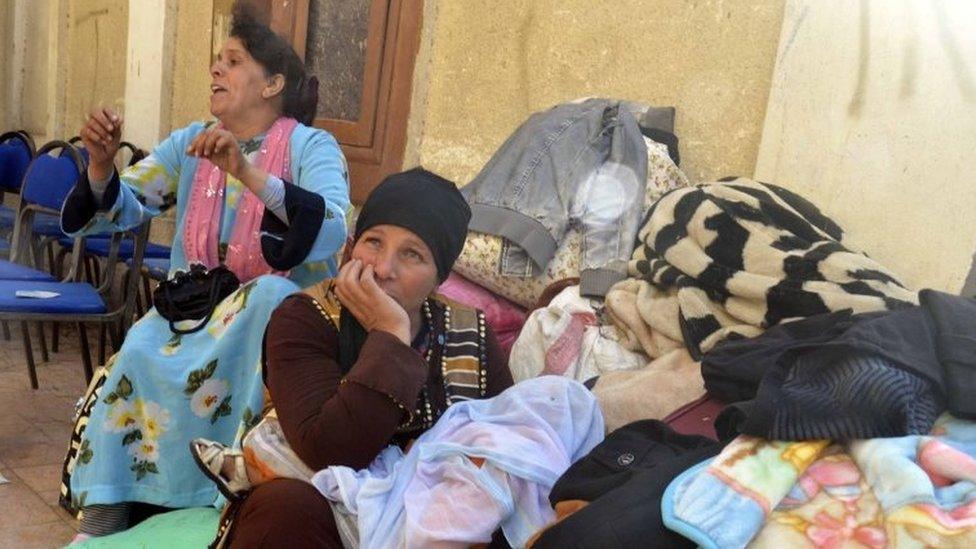Pope Francis visits bombed Coptic church during Egypt visit
- Published
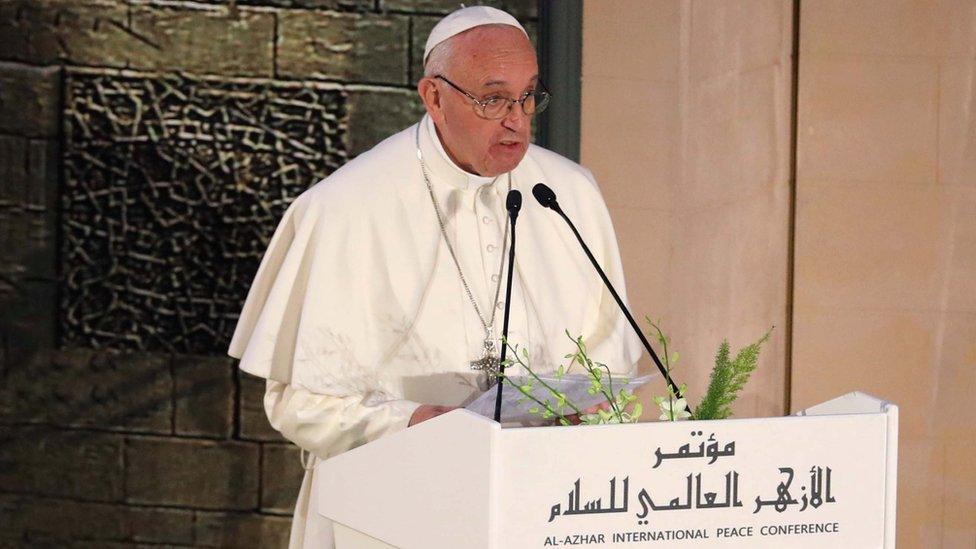
Francis said religious leaders were "duty-bound" to prevent violence carried out "in the name of the sacred"
Pope Francis, on a trip to Egypt, has visited a church where 29 people died in a suicide bombing in December.
He attended a service at St Peter and St Paul church in the capital Cairo with Coptic Christian leader Pope Tawadros II.
The Pope's visit comes at a time when Egypt's Copts are facing an increased threat from extremist groups.
Just three weeks ago, suicide bombers struck two other Coptic churches, killing a further 45 people.
Pope Francis had earlier urged an end to the funding of groups that promote violence, an act which could not be committed in the name of God, he said.
During a speech at al-Azhar University, a key centre of Sunni Islamic learning, which aimed to improving Christian-Muslim dialogue, the pontiff said religious leaders were "duty-bound" to unmask such violence.
He also condemned the "rise of demagogic forms of populism", adding it was essential" to "block the flow of money and weapons" bound for those who promote violence "which purports to be carried out in the name of the sacred".
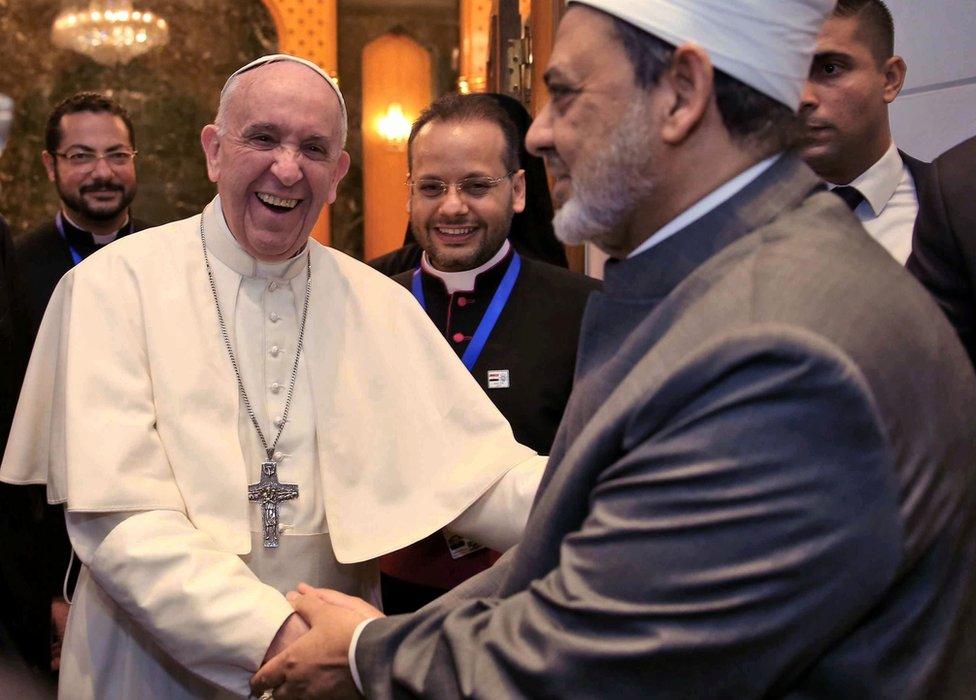
Pope Francis was invited to Egypt by Sheikh Ahmed al-Tayeb, the grand imam of Al-Azhar (right)
The recent rise of populism, he said, was detrimental to worldwide peace and stability.
"It is disconcerting to note that, as the concrete realities of people's lives are increasingly ignored in favour of obscure machinations, demagogic forms of populism are on the rise," the pontiff said.
Before the 27-hour visit - the first papal trip to Cairo in 20 years - he said he was travelling as a "messenger of peace".
The visit came as the Egyptian branch of so-called Islamic State (IS) put Christians under increased threat, describing them as its "favourite prey".
Pope Francis was greeted by President Abdel al Fattah al-Sisi
Coptic Christians - who make up 10% of the country's mainly Muslim population - have been particularly targeted. The majority of the Copts are Orthodox, with less than 150,000 of them Catholic.
IS said it was behind the Palm Sunday bombings, as well as the St Peter and St Paul church attack.
Hundreds of Egyptian Christians fled northern Sinai earlier this year in the wake of at least seven killings by suspected Islamist militants.
'Brotherhood and reconciliation'
The 80-year-old Pope - leader of the world's 1.3 billion Catholics - is in Egypt as a guest of Sheikh Ahmed al-Tayeb, the grand imam of the 1,000-year-old seat of Islamic learning, al-Azhar.
The conference on Friday forms part of efforts to improve relations after Egyptian Muslim leaders cut ties over comments made by Pope Francis's predecessor, Pope Benedict.
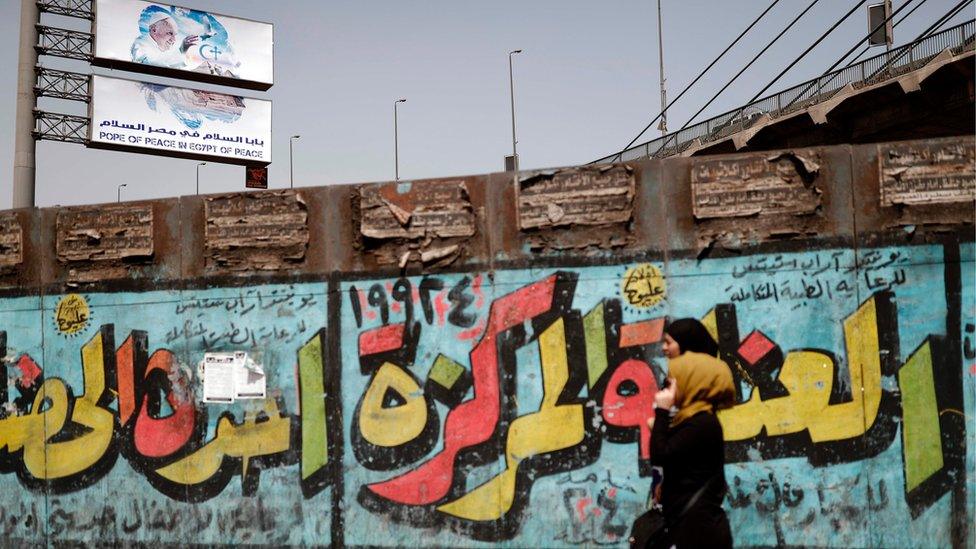
Coptic Christians make up about 10% of Egypt's population
In a message ahead of the trip, Francis said he wanted the visit to be "a witness of my affection, comfort and encouragement for all the Christians of the Middle East" and "a message of brotherhood and reconciliation with all the children of Abraham, particularly the Muslim world".
A three-month state of emergency is in place in the wake of the Palm Sunday bombings, and security has been boosted around churches.
But many Copts say the government should have done more to protect them, and say they are also under pressure from sectarian tensions and long-standing discrimination.

Copts in Egypt: Recent developments
April 2017: Bomb attacks at St George's Coptic church in Tanta and St Mark's Coptic church in Alexandria kill at least 45 people.
February 2017: Hundreds of Coptic Christians flee Egypt's Sinai peninsula after at least seven killings by suspected Islamic militants.
December 2016: At least 29 people die when a bomb explodes at a Coptic church in Cairo during a service. IS says it is behind the attack
February 2016: A court sentences three Christian teenagers to five years in prison for insulting Islam. They had appeared in a video, apparently mocking Muslim prayers, but claimed they had been mocking IS following a number of beheadings
April 2013: Two people are killed outside St Mark's cathedral in Cairo when people mourning the death of four Coptic Christians killed in religious violence clash with local residents
- Published27 April 2017
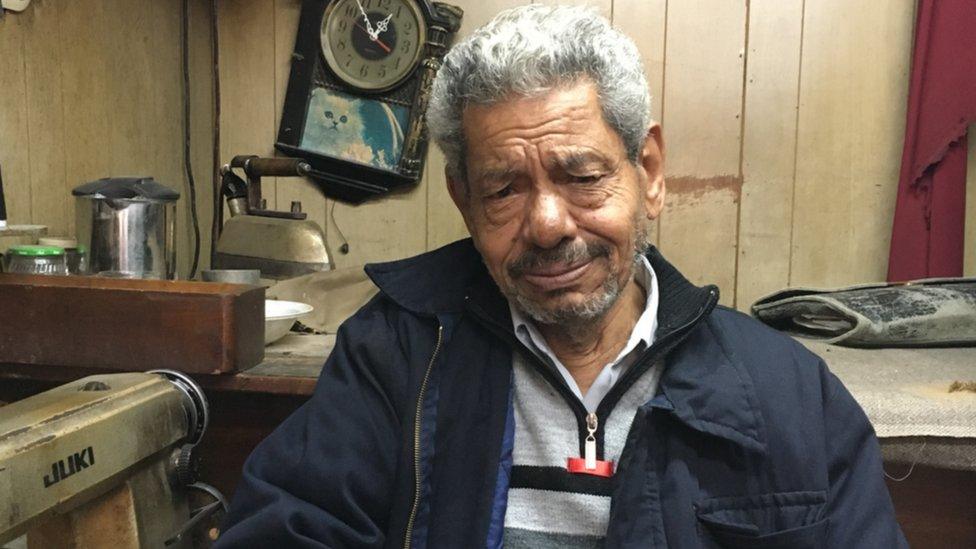
- Published13 April 2017
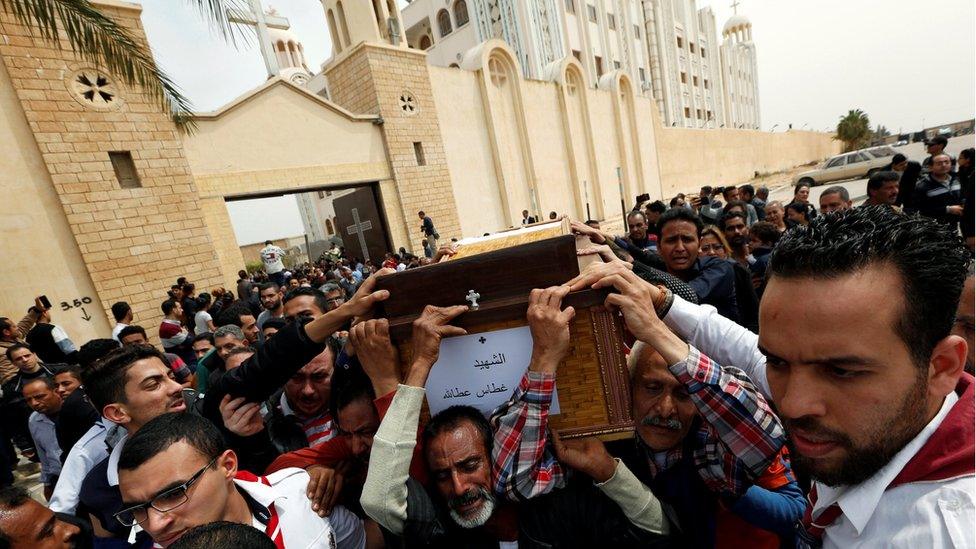
- Published25 February 2017
